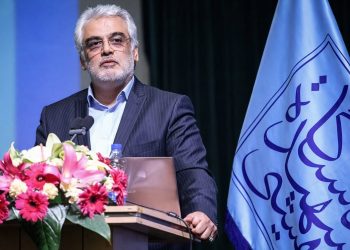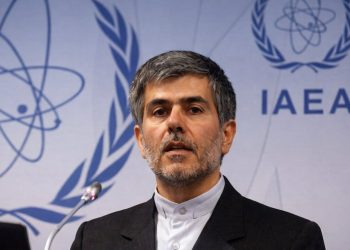Kathy Kelly – President of the Board of World BEYOND War
Thank you for inviting me to be part of the Prospects for Peace panel.
Here in the United States, this week, people are remembering the words and actions of the beloved campaigner for human rights and peacemaking, the Rev. Dr. Martin Luther King.
On April 4, 1967, exactly one year before he was assassinated, he delivered his “Beyond Vietnam” speech which carried his lament that “The greatest purveyor of violence in the world today is my own government.” Dr. King decried the Viet Nam war, and since that speech a succession of wars followed, many of which have been waged in West Asia.
Dr. King’s honesty about U.S. war making leads to two words which are crucial for the prospects of peace in West Asia, – two words that should be spoken by my government: “We’re sorry.”
We’re sorry for selling, storing and using hideous weapons which prolonged wars in your region. We’re sorry we caused displacement and bereavement. We’re sorry for wreckage of homes and environments caused by our militarism and our weapons, and we are sorry for torturing and wrongfully imprisoning people who meant us no harm.
Such an apology should then be followed by reparations in the form of reconstruction, assistance in economic recovery with no strings attached, assistance to refugees, and admission of refugees into safer settings in the U.S. and other countries that waged the “forever wars.”
Please watch with me this video filmed at the Doctors Without Borders hospital in Kunduz, Afghanistan after an October 5, 2015 bombing in which a U.S. warplane bombed the hospital at 15 minute intervals for an hour and a half, even though hospital authorities had begged the U.S. and NATO militaries to stop bombing the hospital.
The United States should be held accountable to answer the questions people have when U.S. weapons destroy their homes. The United States should also stop selling weapons that exacerbate wars in West Asia. No more weapons should be sold to Israel for use against Palestinians in Gaza or the West Bank. No more weapons should be sold to any of the countries in the Saudi led alliance imposing a blockade on Yemen and waging war there.
The U.S. should sign and ratify the Treaty for the Prohibition of Nuclear Weapons and urge every country in West Asia, as well as Israel, to sign the treaty.
Prospects for peace in West Asia would be greatly enhanced if the United States would stop military interventions and close its bases. I’m pleased to be president of the board of an organization called World BEYOND War. Here is a video about our online mapping of U.S. bases.
Dr. Martin Luther King urged that we try to see the humanity of our enemy and also try to see how we are seen by our enemy. Wars continue because people are persuaded to dehumanize the “other,” the enemy.
From Arizona to a small Yemeni town, Arhab, we can trace the journey of a weapon manufactured in a Raytheon factory. In September, 2016, people in Arhab faced terrible drought. They took a sensible step and collectively rented a rig to dig for water, but weeks passed and nothing happened. Finally, one day, they reached water and had good reason to celebrate. A man named Fahd sang and danced into the night and then, in the dark, stumbled toward his home. What he and the others with him couldn’t know was that a Saudi warplane hovered above them. When the pilot pressed a button, a bomb about the size of a compact car was released, dangling from a fuse. When the fuse broke, it was as though the bomb came alive. It sprouted fins and then laser guidance hurtled it directly toward the place where Fahd and friends had gathered. When the warhead hit the ground there was an explosion equivalent to 200 tons of TNT. Shards from the bomb flew at a rate eight times the speed of sound. People were decapitated, disemboweled, maimed, their bodies rearranged. Fahd survived, and he told a reporter, Jeffrey Stern, that the next day when villagers went out to see what had happened, Saudi warplanes returned and attacked the villagers. Fahd, sitting next to the reporter, lifted Jeffrey’s hand to his cheekbone and forehead. Jeffrey wrote that he had followed the journey of a U.S. made weapon from Arizona to a final destination embedded in the face of a man who had thought he had something to celebrate.
One way to help ourselves see our common humanity is to acknowledge that the greatest threat we all face is the threat of what we are doing to our own environment. We cannot begin to solve the terrors of ecological collapse and climate catastrophe unless we begin to collaborate, internationally, calling on all of our scientists to jointly seek solutions to climate change, pandemics, and the proliferation of nuclear weapons. We can no longer afford the military solutions that function like, as Dr. King expressed it, a “demonic suction tube,” draining the resources we need for survival.
Among the countries most vulnerable to the consequences of global warming and ecological collapse are some of the poorest countries in West Asia. I think particularly of Afghanistan, Pakistan, Yemen and Gaza. We must find ways to assist people facing the cold winter months and lacking adequate food.
These resources are available if countries end the futility of war, stop degenerate and bloated military spending, and decide to meet the needs of a planet in crisis.






